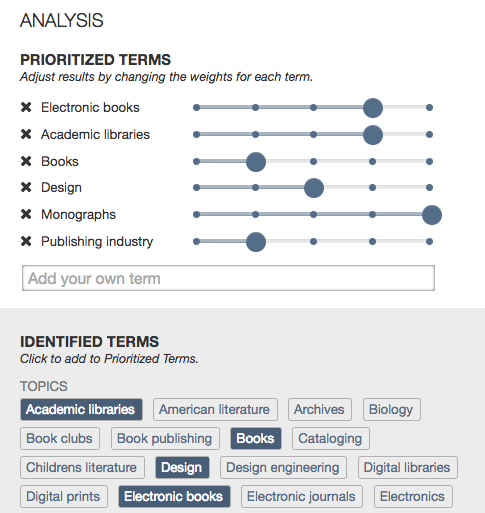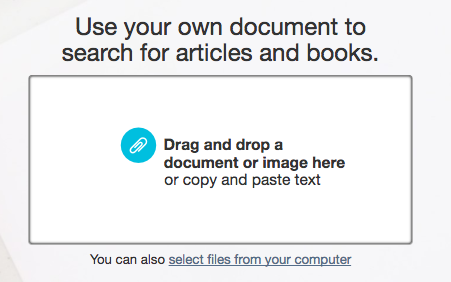On Beyond Keyword Search

Keyword search is pretty darned magical. With just a few typed words and maybe a judiciously-applied Boolean or two, you can sift quickly through mind-bogglingly-enormous libraries of content. It's simple, it's powerful and it's ubiquitous. It's been around, seemingly, forever, and it's going to be around for a while to come.

But it's not perfect. Thinking only of keyword search within an academic context: junior researchers sometimes flail and thrash as they figure out the right keywords for their search – they know what they want, but what set of jargon-y terms will help them find it? At the other end of the spectrum, more experienced researchers can find themselves caught in discipline- or citation-based siloes, unaware of what they are unaware of (until the peer review feedback comes in…). I think JSTOR Labs might have something to help with these problems.
I'm thrilled to announce the beta release of Text Analyzer, a new way to search for articles and books on JSTOR. Upload a document – the paper you're writing, an article you’re reading, anything – and Text Analyzer inspects it, devises a set of terms the paper it "thinks" is about, and then recommends other scholarship from JSTOR based on those terms. To home in on the content you need, you can add and remove terms, increase the relative importance of some terms over others, or flag that you want you're more interested in current content, or only want to see content you have access to within JSTOR.

It's pretty flexible. It'll accept most kinds of documents: PDFs, Word, html, etc. You can cut-and-paste text into it. If you paste or drag a URL into what we've been calling "the magic box," the tool will go to the web page and analyze the text of that page (this works for Google Docs, too). If you access the tool on your phone, it will encourage you to use your phone's camera to take a picture of a page of text, which it will read and then search based on that text. Heck, if you upload a picture without any text in it, it will try to recognize what's in that picture and search on that (with, to be honest, varying degrees of success – when I uploaded my headshot, the tool searched for the terms "bald hill person").
Text Analyzer is still very much a beta! We think it will be useful to students and scholars, but we need your feedback to make it even better. This is why this is the first JSTOR Labs project to be developed directly within the user experience of the primary JSTOR site – so that we can refine it where it can have the biggest possible impact. I hope you’ll try it out and let us know what you think.
